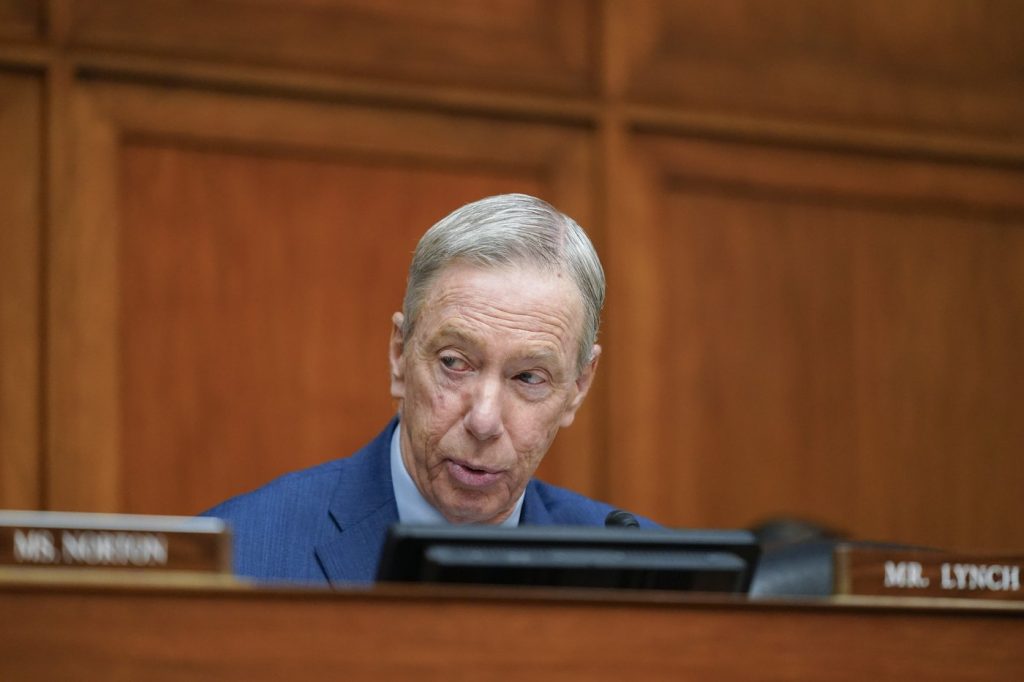WASHINGTON (AP) – House Democrats are currently engaged in a competitive race to fill a significant committee position, the ranking member on the House Oversight Committee, following the death of Rep. Gerry Connolly from Virginia last month. This is the second instance in recent months that Democrats are seeking to appoint a critical figure within Congress.
Four Democratic candidates are contending for the ranking member position on the Oversight Committee, which wields substantial public influence, subpoena power, and has a broad jurisdiction over various issues. Given that the Democrats are in the minority, their capacity to shape the committee's activities is limited, but becoming the ranking member can provide a prominent platform and potential future chairmanship if the party regains majority control in the upcoming midterm elections next year.
The candidates include Stephen Lynch from Massachusetts, who is the acting ranking member; Jasmine Crockett from Texas, known for her viral media presence; Robert Garcia, a former mayor of Los Angeles County advocating for government reform; and Kweisi Mfume from Maryland, a civil rights activist and former NAACP president. While Lynch possesses the most seniority among the candidates, the Democratic caucus appears more open to choosing a candidate based on criteria beyond seniority compared to their previous selection process in December 2022.
As the candidates articulate their visions, key issues being assessed include their communication strategies with the public, the ability to support lawmakers in battleground districts, and their approaches to countering the Republican agenda, particularly regarding former President Donald Trump. Crockett, 44, positions herself as the candidate capable of effectively engaging with Trump’s combative style, emphasizing the need for strategic communication to connect with voters. She states, “It’s about translating and amplifying the message.”
On the other hand, Garcia, 47, emphasizes the necessity for government reform in the wake of the previous administration's actions, while Mfume, 76, has gained support because of his leadership in civil rights. Lynch, 70, claims to be well-suited to challenge the committee's chair, Republican James Comer of Kentucky, and insists on the importance of addressing diverse constituencies, particularly appealing to blue-collar workers.
The election for the ranking member position is scheduled for June 24 and will be held via a secret ballot. All candidates will be presenting their cases to various congressional caucuses, including the New Democrats, Congressional Black Caucus, and the Congressional Hispanic Caucus. The stakes are high, as many Democrats are still undecided, and the candidate they choose will have significant implications for the party’s future direction and strategy.
The Congressional Progressive Caucus is particularly divided in its support, as three of its members—Crockett, Garcia, and Mfume—are all vying for the same position. Rep. Greg Casar, the Progressive Caucus chair, underscores the desire for leadership that can expose governmental corruption and hold influential figures accountable. In contrast, centrist Democrats, represented by Rep. Brad Schneider, are weighing which candidate might best aid the party's success in the 2026 midterm elections and effectively lead oversight investigations.
Seniority remains a consideration among some Democrats, particularly within the Congressional Black Caucus, who historically prioritize it as a means for members of color to ascend through the ranks. However, several members express a willingness to deviate from this tradition, suggesting an evolving perspective on the selection process. Rep. Hank Johnson of Georgia acknowledged that while seniority has been important, other factors are being taken into account in this particular race, as the dynamics within the party shift.
As the vote approaches, the candidates’ public forums and private engagements are crucial, with many believing that a tight race is likely. The outcome of this selection process not only affects the individual candidates but also shapes the future strategy of the Democrats as they prepare for intense confrontations in the upcoming committee hearings focused on key issues such as immigration and LGBTQ rights.










